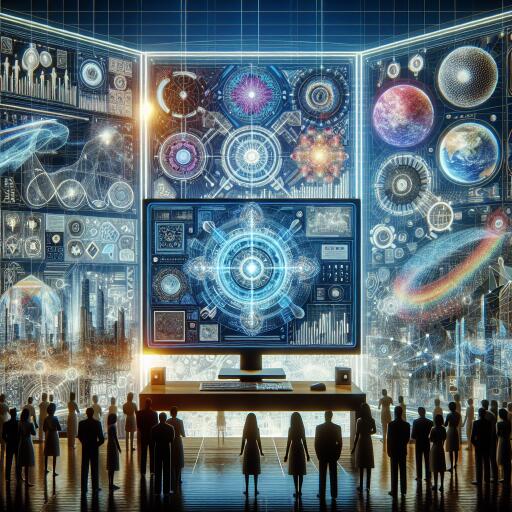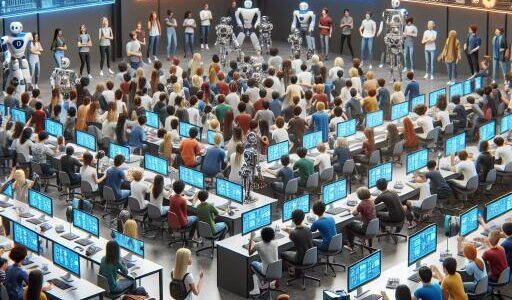PC Enters the Third Revolutionary Era With AI Applications
The landscape of personal computing is experiencing a seismic shift as AI technology becomes increasingly integral to the PC market. With the emergence of generative AI, personal computers are no longer mere tools for executing commands but are evolving into intelligent companions capable of understanding user needs and offering personalized experiences. This leap forward marks the advent of what can be described as the third revolution in the PC industry, following the waves of graphical interfaces and internet connectivity.
Manufacturers are racing to embed AI capabilities into PCs, signaling a bold move towards an AI-dominated future. Analysts from Canalys forecast an impressive outlook, projecting that by 2027, AI-powered PCs will constitute 60% of the market. This prediction underscores a rapidly growing interest in artificial intelligence from both the industry and users, driven by a quest for efficiency, data privacy, and a tailored user experience.
Technological consultancy giants like Gartner are also weighing in, estimating that by 2025, more than half of all data managed by enterprises will be generated and processed outside of traditional data centers, leveraging localized, user-centric AI applications. This shift is not merely about preference but a necessary evolution to address the increasing concerns around energy use, security, and the desire for a more customized interaction with technology.
Intel’s shipment of over eight million AI PC processors marks just the beginning of this transformation. The anticipated proliferation of AI PCs is set to redefine user experiences, offering an array of applications that cater to various personal and professional needs. This, however, poses significant challenges and opportunities for the CPU industry, tasked with upgrading its capabilities to meet the demands of AI processing.
AI CPUs represent a departure from traditional processors, engineered to support the complex computational needs of intelligent applications. These advanced processors are envisioned to power a broad spectrum of devices – from IoT gadgets and smartphones to vehicles and virtual reality environments, highlighting the versatility and necessity of AI technology in the contemporary digital ecosystem.
Yet, transitioning to AI-compatible CPUs demands more than just technological innovation; it requires a reimagining of the entire ecosystem surrounding PCs. As noted by experts in the field, developing a cohesive infrastructure that supports the seamless integration of hardware, software, and AI models is paramount. This entails navigating and overcoming the entrenched barriers within the current ecosystem, a challenge that underscores the need for collaboration across the industry.
China’s position as a burgeoning AI PC market, coupled with its comprehensive industry chain, presents a strategic advantage in this global transition. Collaborative efforts among manufacturers, developers, and chip designers are critical to bridging the gap with leading international players, ensuring that AI PCs can meet the evolving demands of users worldwide.
The incorporation of AI into personal computing is setting the stage for a transformative era. AI PCs promise to bring forth a future where personalized digital assistants are a standard feature, revolutionizing the way we interact with our devices and, by extension, with technology itself. This imminent shift heralds a new chapter in personal computing, redefining the PC not just as a tool, but as a partner in managing the intricacies of work and life in the digital age.










